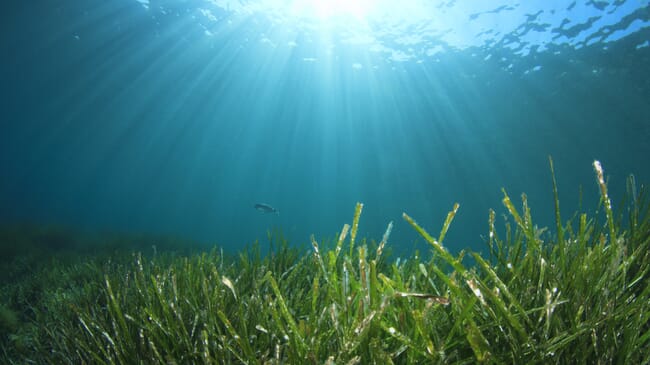
The field study conducted in October 2024 by master student Emily Jones, highlighted significant degradation of seagrass meadows in the shallow, sheltered waters surrounding the Greek island of Poros, an area with aquaculture farms. The study suggests that the timeline of fish farming’s ecological impact may be significantly longer than previously thought – persisting at least 14 years after farm removal – and maps its spatial footprint more extensively than prior assessments in the region. Furthermore, it provides one of the first detailed accounts of how cumulative aquaculture duration affects both individual plant physiology and entire meadow structures over time.
Gwilym Rowlands, associate professor of marine conservation and management at the University of Oxford and supervisor of the study, noted in a press release, “We were surprised at the distance from the perimeter of the farms that damage had occurred, which was up to 900 metres - a large increase on the 400 metres identified in reviews of similarstudies.”
“P. oceanica meadows in zones where meadow die-off and degradation have occurred are likely irrecoverable. A one-square-metre patch of seagrass can take decades to recover, based on the extremely slow horizontal growth rate of this species, one to six centimetres per year. Thus, the current 8.53km2 area of P. oceanica impacted by fish farms on Poros is likely to take centuries or millennia to regrow, which is only likely if nutrient and climatic conditions remain at healthy levels, which is not likely under future fish farm expansion plans, or future climate change projections,” added Jones. The research is currently unpublished and will undergo the peer review process soon.
Scientists suggest revising site selection guidelines
The scientists argue that future aquaculture development must avoid P. oceanica habitats, particularly in shallow, sheltered coastal regions where damage is most severe and recovery is slow or absent.
“Revised siting guidelines, long-term ecological monitoring, and stricter environmental impact assessments are necessary to mitigate ongoing degradation,” notes Rowlands. Impacts are particularly high in Poros due to the proximity of fish farms to the shoreline and effects are intensified as fish farm-induced nutrient stress is trapped in the sheltered coastal zones, which are prime habitat for P. oceanica.
Concerns in Greece about farm expansions
The findings add to growing concern over Greece’s planned expansion of fish farming across 25 coastal zones. On 22 June, over 2,500 people in Poros formed a human chain along the shoreline, calling for greater environmental oversight. A few days later, the study, alongside data from legal experts, local mayors and community leaders was presented in the Greek Parliament as part of a broader appeal by urging a review of aquaculture policy in ecologically sensitive areas.
“The siting of planned development zones has not followed proper maritime spatial planning processes, so they need a thorough review, especially given that we have available data on spatial distribution of key marine habitats, such as P. oceanica meadows. Where such data don’t exist, we must use advanced tools and methods to extract it. Only then can we preserve these precious meadows and avoid such conflicts," said Dimitri Poursanides, technical scientist at Hellas Foundation for Research & Technology.




